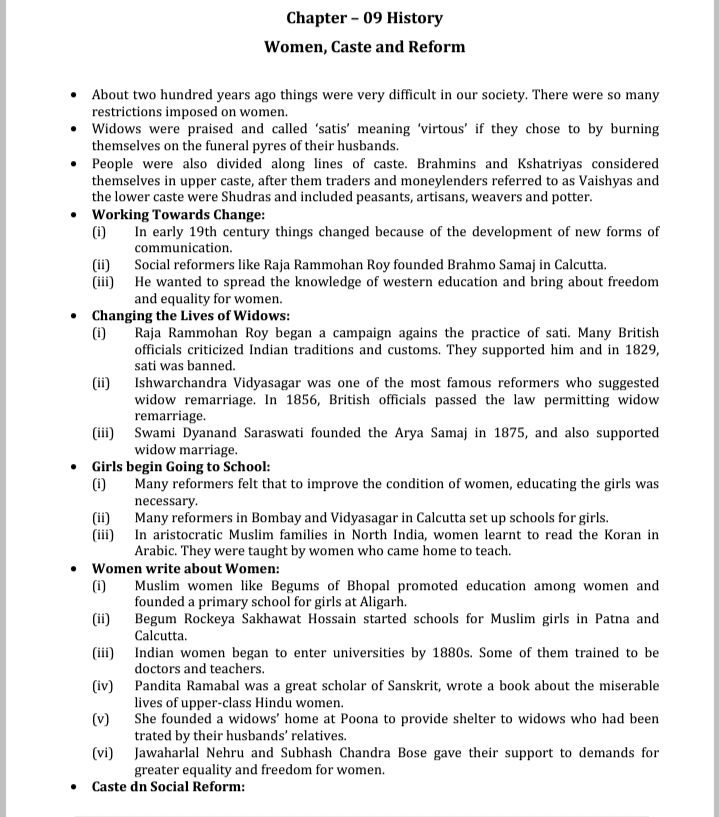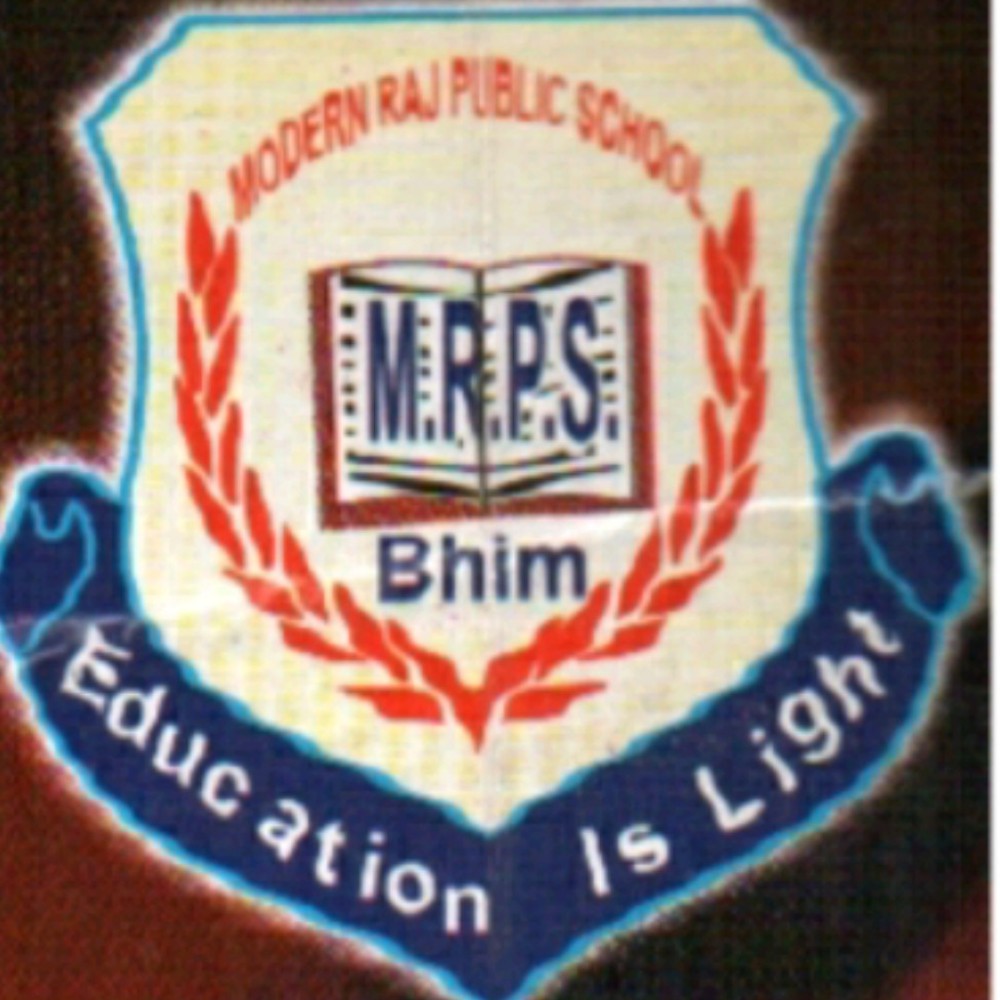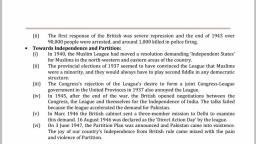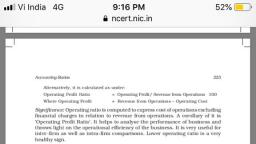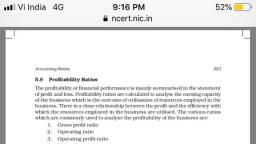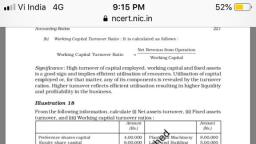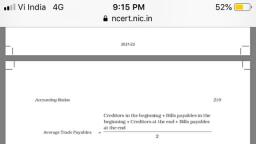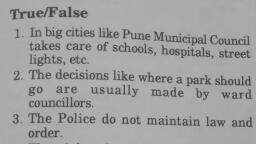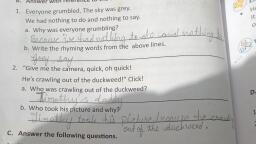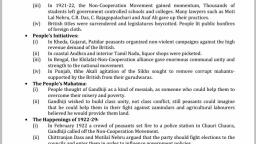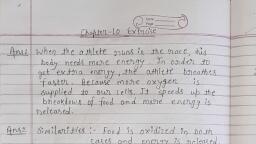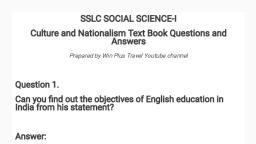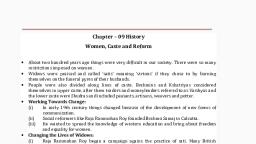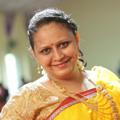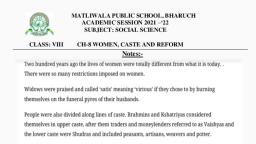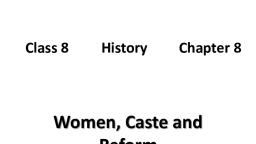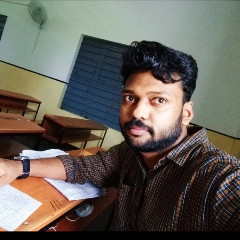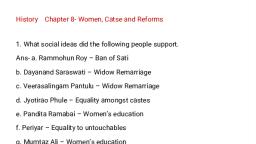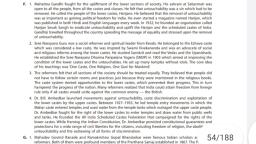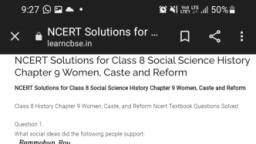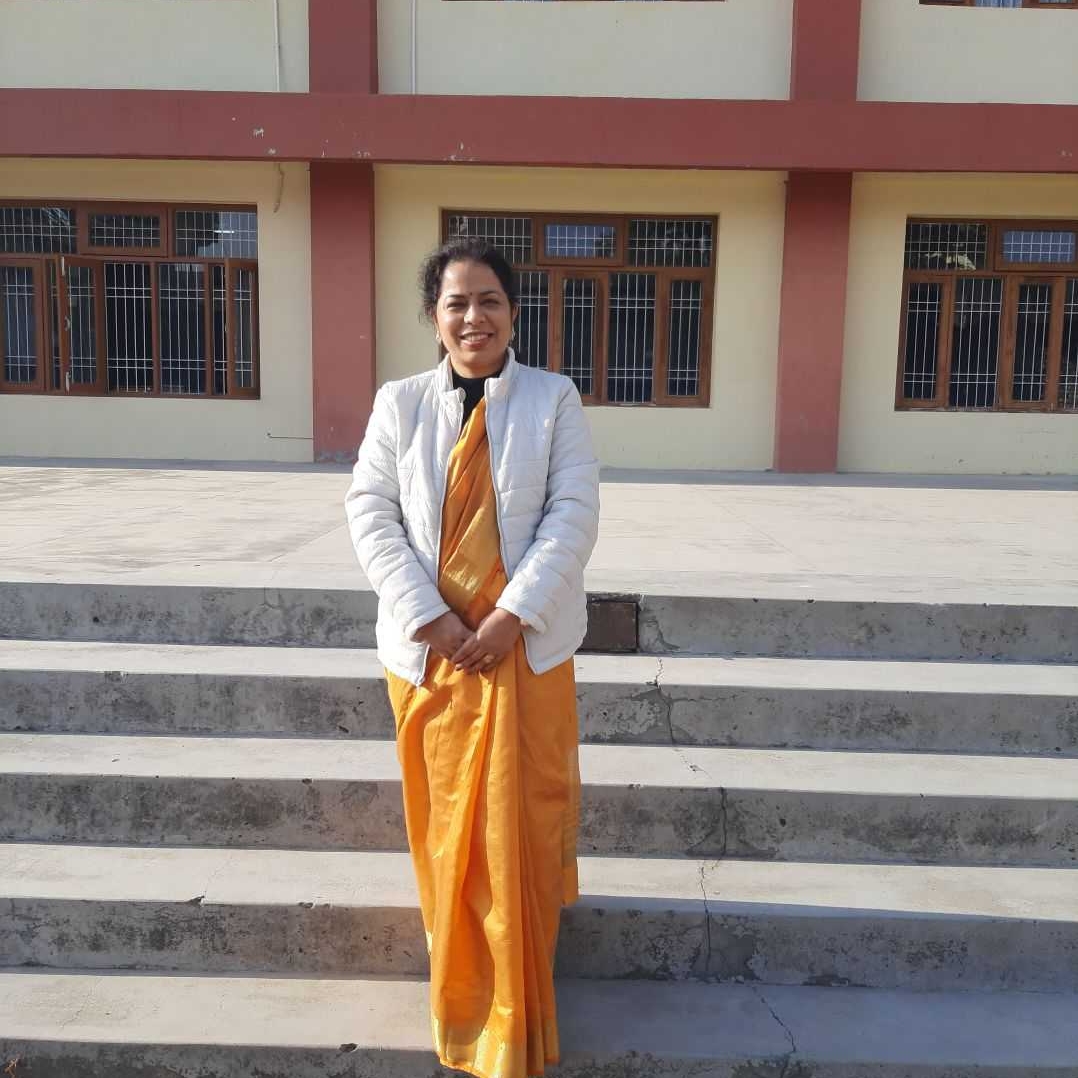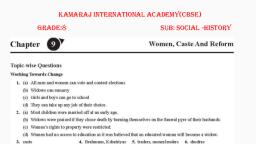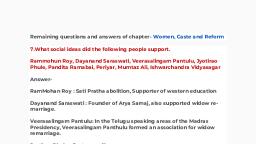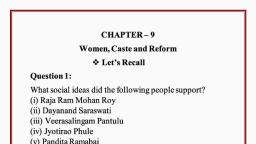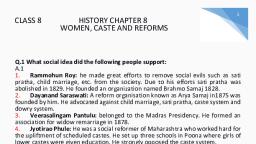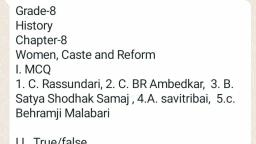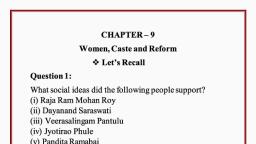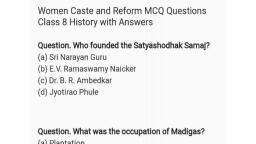Page 1 :
Chapter - 09 History, , Women, Caste and Reform, , About two hundred years ago things were very difficult in our society. There were so many, , restrictions imposed on women., , Widows were praised and called ‘satis’ meaning ‘virtous’ if they chose to by burning, , themselves on the funeral pyres of their husbands., , People were also divided along lines of caste. Brahmins and Kshatriyas considered, , themselves in upper caste, after them traders and moneylenders referred to as Vaishyas and, , the lower caste were Shudras and included peasants, artisans, weavers and potter., , Working Towards Change:, , (i) Im early 19th century things changed because of the development of new forms of, , communication,, , Social reformers like Raja Rammohan Roy founded Brahmo Samaj in Calcutta,, , He wanted to spread the knowledge of western education and bring about freedom, , and equality for women,, , Changing the Lives of Widor, , (i) Raja Rammohan Roy began a campaign agains the practice of sati, Many British, , officials criticized Indian traditions and customs. They supported him and in 1829,, sati was banned., , (ii) Ishwarchandra Vidyasagar was one of the most famous reformers who suggested, widow remarriage. In 1856, British officials passed the law permitting widow, remarriage, , i) Swami Dyanand Saraswati founded the Arya Samaj in 1875, and also supported, widow marriage., , Girls begin Going to Schoo!, , () Many reformers felt that to improve the condition of women, educating the girls was, , necessary,, , Many reformers in Bombay and Vidyasagar in Calcutta set up schools for girls., , In aristocratic Muslim families in North India, women learnt to read the Koran in, , Arabic. They were taught by women who came home to teach., , Women write about Women:, , (i) Muslim women like Begums of Bhopal promoted education among women and, , founded a primary school for girls at Aligarh., , (ii) Begum Rockeya Sakhawat Hossain started schools for Muslim girls in Patna and, , Calcutta,, , (iii) Indian women began to enter universities by 1880s. Some of them trained to be, , doctors and teachers., , (iv) Pandita Ramabal was a great scholar of Sanskrit, wrote a book about the miserable, , lives of upper-class Hindu women,, , (v) She founded a widows’ home at Poona to provide shelter to widows who had been, , trated by their husbands’ relatives., , (vi) Jawaharlal Nehru and Subhash Chandra Bose gave their support to demands for, , greater equality and freedom for women,, , Caste dn Social Reform:, , , , , , , , , , (i
